Despite the fast pace of the city, Joburg remains in strong pursuit of culture – culture that is rooted in tradition in times when contemporary life can easily overshadow it. Leaning into her identity as an 'Indelible Storyteller', Pilani Bubu effortlessly blends the riches of the past with a forward-thinking attitude in her work across many fields. When it comes to her momentum and drive, there's no shortage of either. Bubu wears many hats: singer-songwriter, poet, TV presenter, creative entrepreneur, brand strategist, and consultant. She's also the founder and creative director of Folklore, a community-driven platform dedicated to celebrating, sharing, and preserving cultural heritage and folklore through diverse art forms.
Bubu was born in the Eastern Cape (known then as the Transkei) in the small town of Mthata. For part of her upbringing, she grew up surrounded by villages rich in Xhosa and Mphondo culture, but in 1997 she moved to Joburg to attend boarding school and also experienced life as "a privileged, suburban city kid". This duality shaped her, embracing both a global perspective and a strong affinity for storytelling and, in particular, folklore.
This multifaceted talent describes herself as a "hard-wired humanitarian" and says, "I believe in the betterment of humanity and making the world a better place. I pride myself in my relationships and believe everything I have ever done or executed in my personal and professional career has been about the people."
The Mthatha-raised artist won the award for Best African Adult Contemporary Album at the 2020 South African Music Awards (SAMAs) for her album Folklore – Chapter 1. This success inspired the Folklore Festival – an annual celebration of heritage, culture, and creativity. Yet, in true Bubu fashion, the festival doesn't confine itself to a main stage or a tightly curated lineup over just a few days. The Folklore Festival flows more like a current, launching at Mamakashaka and Friends in Braamfontein on Fri, Apr 5, 2025 to set the tone for what's to come. The festival's themes of interconnectedness and communion will come to life in fringe shows held throughout the year. Book here for the launch.
We spoke to Bubu about the power of stories, why she's leading the charge for the resurgence of folklore, and how she treads the line between tradition and contemporary life.
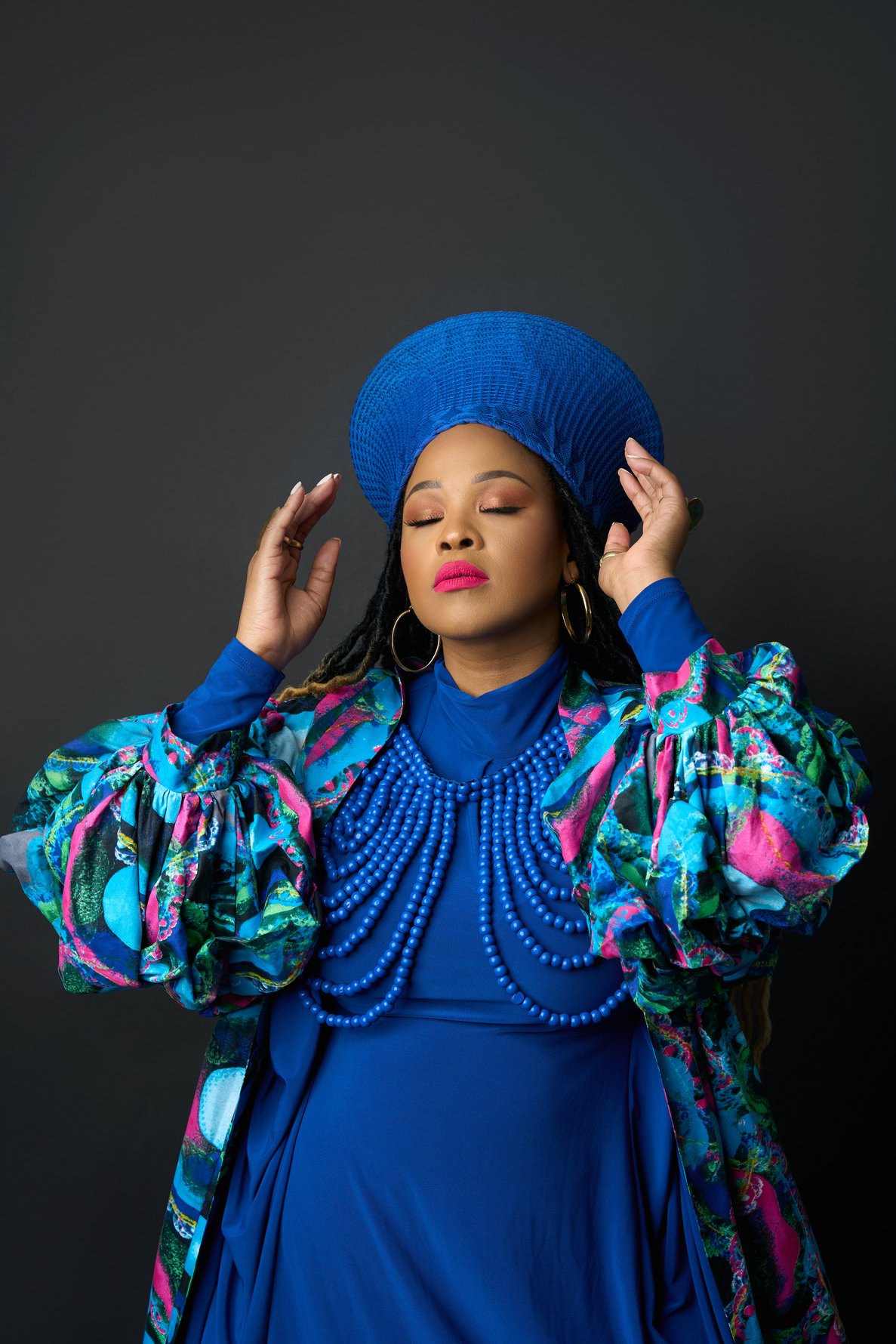
"Johannesburg is known for a resilient hustle... however, we are now embodying softer and gentler ways toward prosperity."
Tell us about people's stories, their power and beauty
I am moved and energised by the way people relate in the world and the beauty we all try to make of the world. Stories are there for resonance, giving us a sense of belonging, like we are not alone. Stories help us articulate our lived experience for ourselves and others. That is where the power of healing lies – in sharing our stories.
What role does folklore play in a place like Joburg? It's not a word we come across often in the city... but it is inextricably linked to the human experience.
Folklore is the art of the story in all disciplines of art and communion between people. The city is rich with the resurgence of folk music, indigenous inheritances, and the desire to return to roots in our spiritual walk, in our thinking, and value systems. So much is distorted in the world we are experiencing now, filled with conflict and imperialism. These systems – capitalism and fascism – conflict with our African values. As the West continues to pull, as Africans, we are working harder to stay rooted and grounded in a higher truth. Everything we're seeing now is folklore – merging the beliefs and customs of the past, present, and future. No longer just word of mouth, but prioritising its documentation and preservation.
How do you tread the line between tradition and contemporary life?
It's simply who I am and how I was raised. I was born in the then homeland of Transkei, now known as the Eastern Cape, in a small town called Mthatha. It's in close proximity to all kinds of villages deeply entrenched in Xhosa and Mpondo culture. Then, I lived as a privileged, suburban city kid who grew up playing PlayStation and listening to MTV. That duality made me who I am, steeped in culture but progressive. I allow myself to be a global citizen and share my inheritances, heritage, and cultural gifts. Both sides to myself have purpose and resonate with those who can identify with these experiences and even those who are simply curious.
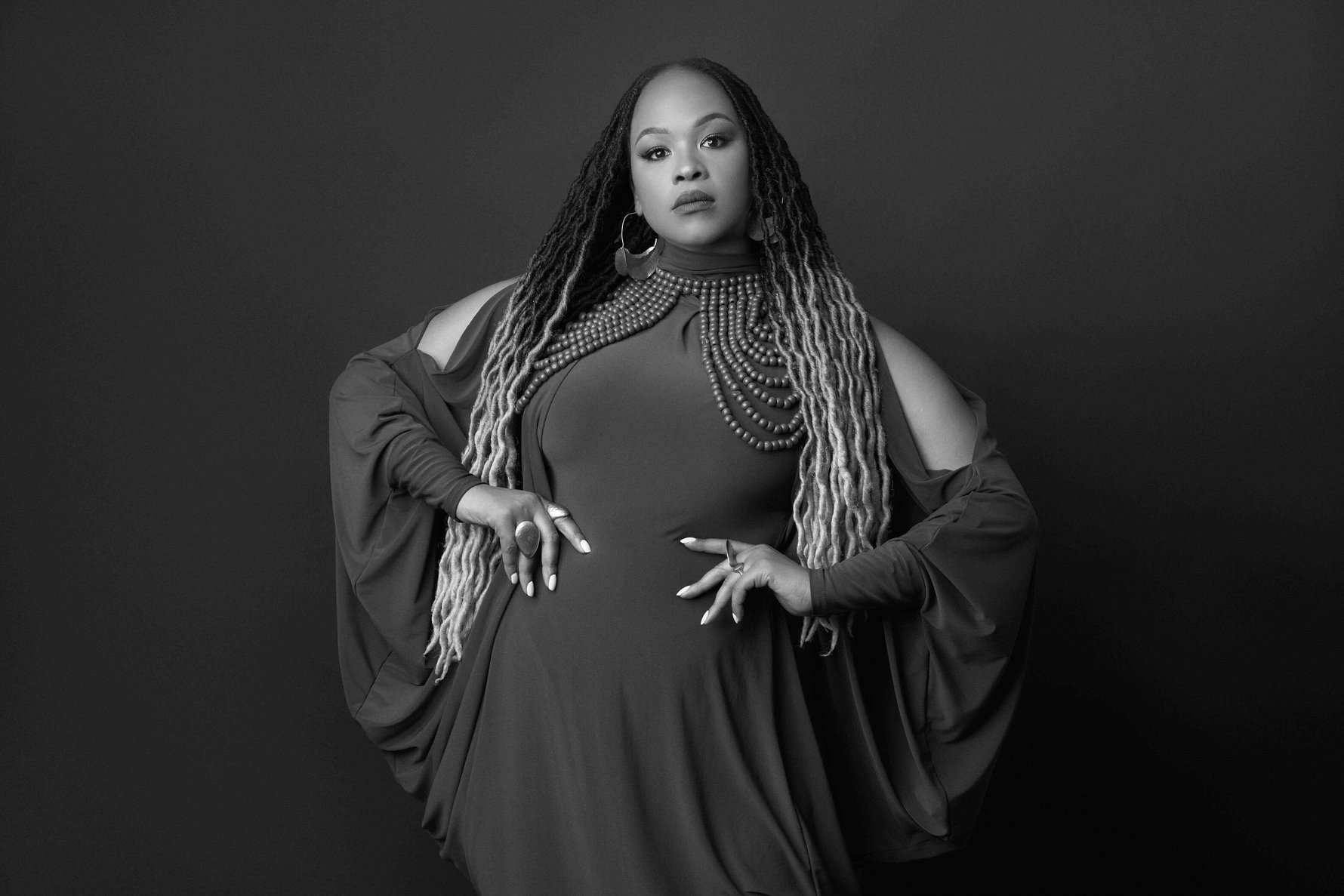
Who are some of the best exemplars of folklore tradition in South Africa?
Some of the artists I admire, who are committed to weaving ancient stories, sharing tradition, sharing stories of past and current cultural existence across disciplines are: Andile Dyalvane, Dizu Plaatjies, Sisonke Papu, Zizipho Poswa, all the Mashilos – Manyuku Mashilo, Cow Mash, Setlamorago Mashilo – Sibusile Xaba, Madala Kunene, Gcina Mhlophe... actually this is a dangerous task. I say people should follow our folklore.community journey, and our curated lineup and events will continue to reveal my favourite multi-disciplinary folklorists.
Your creativity has so many sides and shapes to it – what brings you joy when playing in all of these different spaces?
The joy comes from execution. Creativity lives rent-free in the mind, but turning your vision and dreams into tangible reality is very fulfilling! The other joy factor is the power that lies in passion; it's the passion that keeps me going because of its navigational force to get one closer and closer to one's purpose. Every time I make anything happen in the advertising space, in the music scene, in interior design, or in the creative sector at large, I tap into a transformative force for change and co-creation. Creating a world as you best see it and acknowledging one's role in the collective consciousness.
"Folklore is the art of the story in all disciplines of art and communion between people. The city is rich with the resurgence of folk music, indigenous inheritances, and the desire to return to roots."
What was the impetus for starting Folklore Festival?
The release of my album: Folklore Chapter 1 in 2019 led to the conceptualisation of the Folklore Festival. Which first started as Folklore For Kids – centred around inter-generational dialogue. The idea of the album series is being carried through in the festival as an exploration of how to embody, document, and archive ideas of our identity, culture, and heritage through the technology of music and various art forms. Also note the bigger conversations to be had in the full expressive body of culture, which is folklore. The festival and folklore community function as an invitation to others to contribute to this ongoing archive through this platform.
What's exciting about the lineup for 2025?
In 2025 we are exploring the themes of interconnectedness and communion with the hashtag #KINFOLK. Our manifesto talks about enhancing the delicate synchronicities of the human connection, not merely through bloodlines but through the resonant frequencies of shared understanding. Appealing to kindred spirits drawn together by an ineffable recognition of mutual truth. We hope to gather in sacred spaces to weave together our cultural inheritances and gifts, like tributary streams joining a mighty river, watering our collective consciousness.
And what's exciting about the 2025 lineup is that it's not just a lineup – we plan to journey with our artists as collaborators and media partners to truly activate their mission and cause as a shared value system. It will be a diverse lineup of emerging and prominent folk and indigenous influencers across disciplines, focusing on meaningful intersections of fringe shows for the next 12 months.
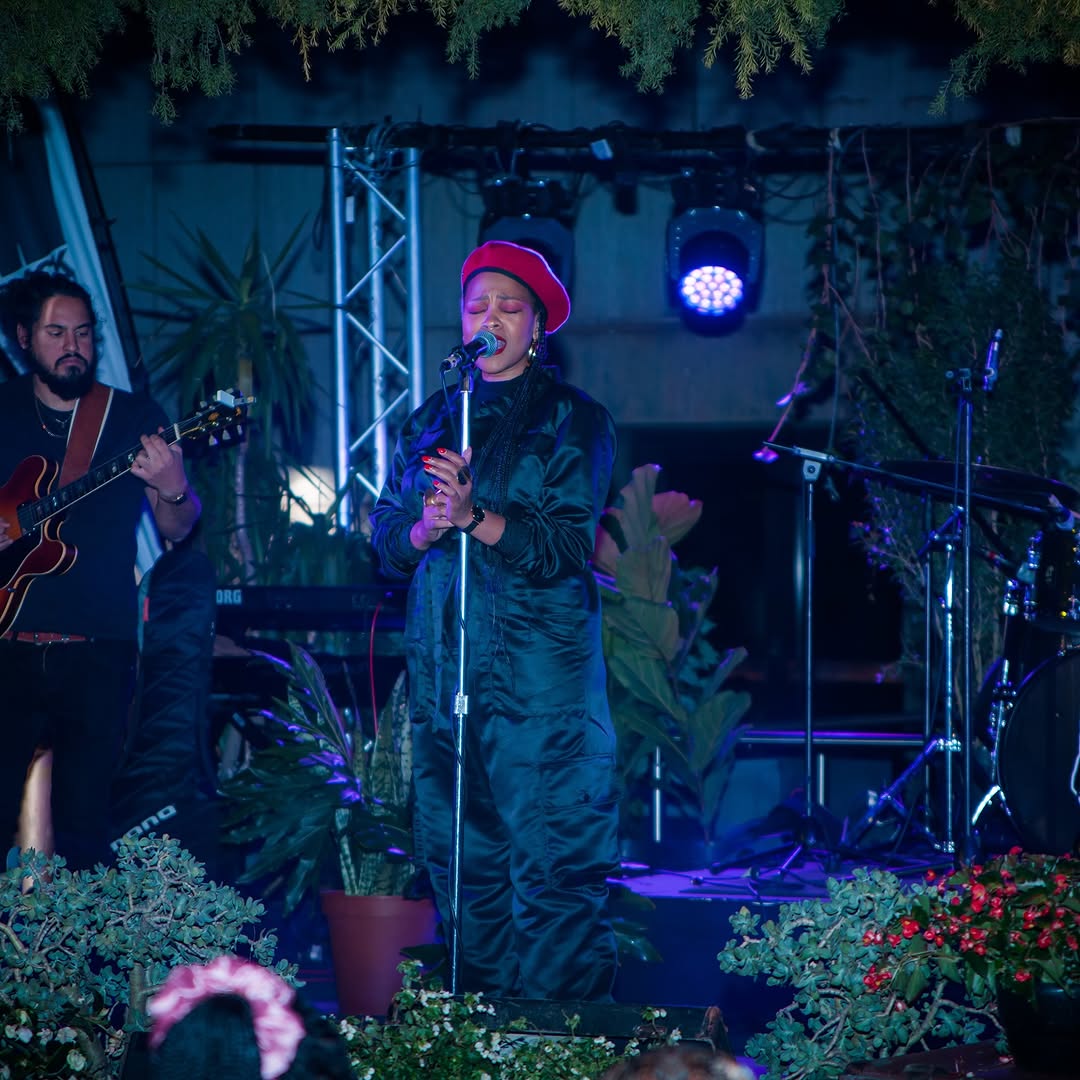
When you think about the story we tell ourselves – and about ourselves – as Joburgers, what comes to mind? How would you shift this narrative?
Johannesburg is known for a resilient hustle – no real shifts needed as the energy is productive. However, we are now embodying softer and gentler ways toward prosperity. Johannesburg is vast – but we are trying to find ways to become more intimate and to find our tribe. Johannesburg is trendsetting and influential – but we each individually continue to search for our unique identity and purpose within the whole.
Three things you can't live without?
My laptop, lipstick, and coffee.
What brought you to Joburg and what makes you stay?
I came to Johannesburg for boarding school in 1997. Well, once you catch the frequency and creative vibration of this city in whichever community, you either love it or hate it. I loved it! And hey, it was the 90s – we were free! And the culture was buzzing in the townships, the city, everywhere.
"Observe [Joburg] first, then build your own unique world and community. Don't just dive in – you'll hurt yourself."
Home is...
Where your heart and mind can find space – to heal, to rest, and to create.
What is a surprising thing people might learn about Joburg by having a conversation with you?
I know a lot of people! Because I've been here a while, I've lived in all four corners of the city. It's forever changing and there is an era for all the cool kids and the others. I've watched a number of waves since the 90s and how they have shaped industries, art scenes, and shared ideas. And how those ideas inspired the next wave and how that wave shifted some to the background and others to the fore. And how that cycle goes on and on. But the lesson would be in the power of reinventing oneself and ideas. Change is the only constant.
The most memorable meal you have eaten in Joburg?
The most memorable – Glory. Ceviche and tacos have always been a highlight.
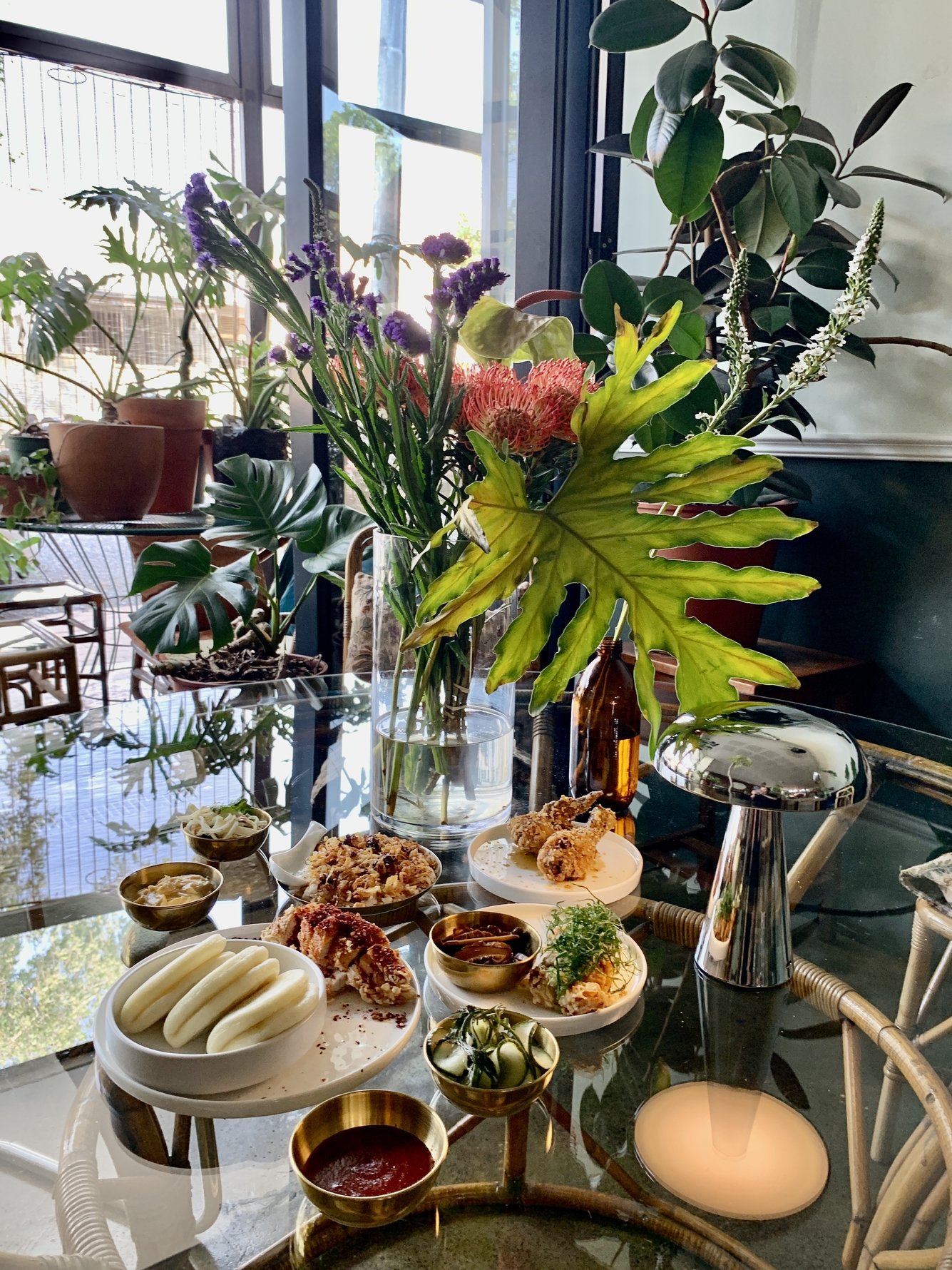
Your favourite Joburg suburb and why?
Parkview – it remains quaint, intimate, and lush.
What things should a visitor not leave Joburg without seeing or experiencing?
I always say, spare three hours for the Apartheid Museum, go to a club to listen to amapiano and drum and bass in their glory, dance with South Africans (it's life-changing), and go into the city – that's where the culture is the most vibrant and bold. See a live music show, visit a gallery, and attend one market over the weekend.
Your favourite Joburg author or favourite Joburg book?
I wouldn't say favourite, but it explains a lot of what you see in Joburg in its diversity and South Africa post-apartheid. It helps you understand South Africa through the lens of its history and people. And it's funny – we just love satire and it shows you we're okay with laughing at ourselves! Racist's Guide To The People Of South Africa by Simon Kilpatrick.
One song on your playlist that either is about Joburg or makes you think about this city?
Palafala by TKZ on my kwaito playlist. It reminds me of the first time I moved to Joburg in 1997. Exploring township culture in Soweto and how that influenced the music, the fashion, and the optimistic and ambitious culture.
If you could buy one Joburg building, which would it be?
I'd love to own something in the Play Braam precinct in order to stay plugged into the diverse audiences it draws, from culture enthusiasts to students, to influence them to adopt the culture we've been building, and to invest in the city.
Who is one Joburg personality you would honour with the Freedom of the City if you could, and why?
Nandi Dlepu of Mamakashaka! She's a cultural pioneer.
If you were Joburg's mayor for one day (average tenure), what would you change?
Keeping the culture in the city with the converted arts enthusiasts. I would infiltrate the suburbs and enable creative opportunities by reviving the purpose of community centres. But really dope ones. That way, we could bring new audiences into art spaces whose share of wallet we need.
"Johannesburg is trendsetting and influential – but we each individually continue to search for our unique identity and purpose within the whole."
What makes someone a Joburger?
An efficient, energetic, ambitious spirit.
What do you love most about Joburg?
The sense of ambition – we're constantly expanding and growing.
What do you least like about Joburg?
It can be cultish.
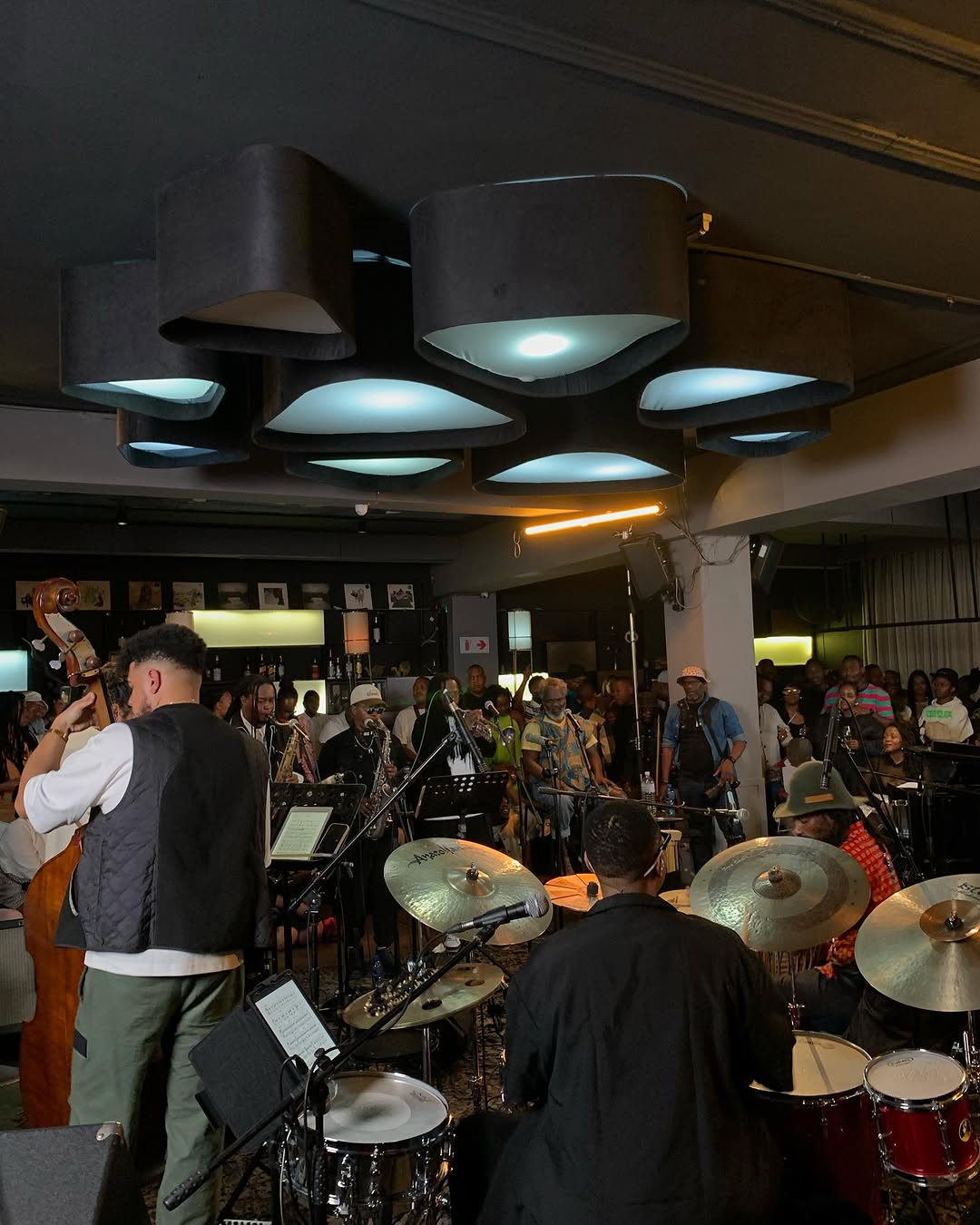
Your number one tip for a first-time visitor to Joburg?
Observe first, then build your own unique world and community. Don't just dive in – you'll hurt yourself.
The perfect weekend in Joburg includes...
A gallery visit, a food and craft market spree, drop into a restaurant in one of the cultural strips in Parktown North, Parkview, Parkhurst, Melville, Linden – and the likes. And hey man, I have to say, drop into a music show at whatever venue is still pushing the culture – Untitled Basement, Chiesa Di Pazzolupi, etc.
Three words that describe this city.
Ingenious. Extroverted. Ambitious.
Check out some of our previous #MyJoburg interviews for more insights into the city:
#MyJoburg with Vicky Ross, cultural entrepreneur
#MyJoburg with James and Vicky Peech, gracious hosts
#MyJoburg with Gerard Bester, art instigator and "relucant anti-hero"


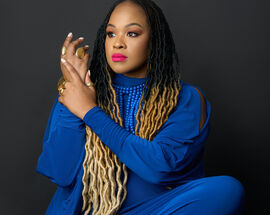
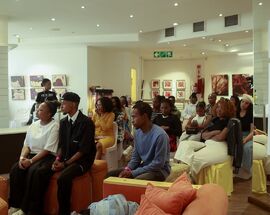
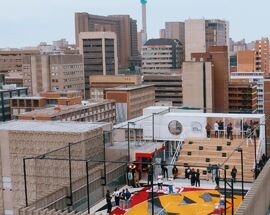


Comments